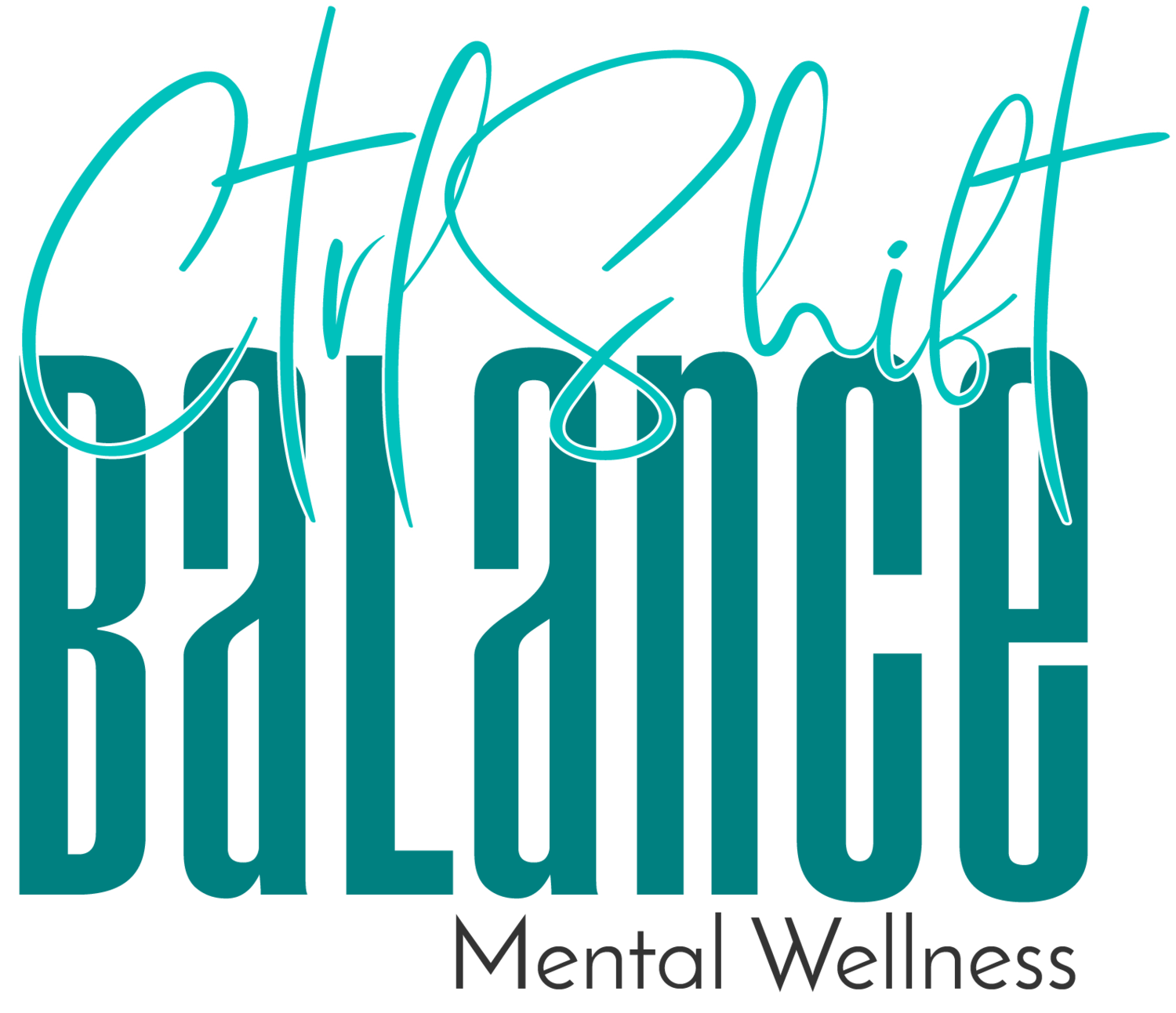
Ctrl Shift overWhelmEd
Ever had days where everything just feels a little bit too much? Days where it all feels so consuming and you feel like you can’t get anything done?
As we get older, we find ourselves buried in a never-ending list of priorities, to-dos, commitments, and responsibilities. And this is where the feeling of overwhelm sets in.
Most of us have been there. And it is in no way because we’re weak. It’s only because overwhelm is something we all feel at some point in our lives and that’s okay.
So what can we do the next time we get caught up with overwhelm?
Pause
This may seem a bit flawed when you have five deadlines to meet by the end of the week, but still. It is so important to create sacred boundaries around your time.
Carve out even just 15 minutes of your time to PAUSE. Take a step back from everything and go have a cup of coffee, take a walk, go for a short drive.
Oftentimes, overwhelm comes from feeling like we have no time. The truth is, we are more in control of our time than we think.
Refocus
A common cause of feeling overwhelmed is because there’s usually a lot going on inside our heads. When overwhelm sets in, it’s easy to lose sight of what’s most important. Instead of trying to do everything at once, take a moment to get clear on what’s most important to you.
There are many reasons why we feel overwhelmed and one of them is the lack of clarity on what we want. Be clear with your priorities and WHY you are doing them. You’ll find yourself focusing on the right things.
Say “no” more
It’s about time you learn to stop putting so many things on your plate. Saying no is one strong foundation of creating healthy boundaries. You can’t be all things at once. Always remember to leave room for yourself.
When asked to take on a project, carefully think about whether you can deliver on that “yes”. Also, be honest — to the person, but mostly to yourself.
Let perfectionism go
One of the most persistent types of overwhelm is feeling like we can never get anything done. But in reality, it’s all because we expect so much of ourselves. We set standards so high that nothing we do feels enough.
More often than not, we find ourselves constantly trying to do more in the chase of perfection. But all that does is lead us to extreme overwhelm and exhaustion. Let perfectionism go and start working smartly instead.
Create systems for your work, try new technologies, leverage your time by organizing and delegating tasks. Anything that can help you sort through whatever it is you have on your plate, do it.
Overwhelm is… something we can never avoid. But it is something we can have control over. Learn to figure out what’s driving you to overwhelm in the first place so you can get around it and understand better how to work on it.
If you want to share your story and talk about more ways you can overcome overwhelm, schedule a consultation with me.
With Balance & Wellness,
Shayla Peterson, LCSW, LISW-CP
Ctrl Shift Adulting
How Do You Adult?
3 Quick Strategies when dealing with Adulting & Anxiety
‘Adulting’ – how exactly do you do it?
It’s weird, isn’t it? We all age without much effort. ‘Adulting’ isn’t something that comes naturally to a lot of us. Becoming an adult, however you define it, doesn’t happen overnight. It requires continuous learning. Not just learning how to be a ‘real’ adult, but also learning how to cope with new realities and not letting adulthood destroy your mental health.
If you’re a young adult and you feel like you’re struggling, know that you’re not alone.
Your mental health faces some of its biggest challenges in young adulthood. Whether it be self-consciousness, depression, FOMO, anxiety, or dealing with uncertainty about the future, this stage in your life can be a very trying time.
So, how do you deal with it? How do you deal with ‘adulting’ and all the anxieties that seemingly come with it?
Accept yourself.
Do you feel like no one ‘gets’ you? Have you always felt like you never quite fit in? Do you feel sidelined or left out of ‘mainstream’ society?
Accepting yourself is often easier said than done. But please know that there’s acceptance out there, truly. And it needs to start with you. Accept yourself and you’ll find others who’ll love you for you, too.
Yes, you might feel confused, intimidated, and lonely at times. But, know that there’s a place – and a community – out there that will make you feel safe and appreciated for who you truly are.
Practice self-care every day.
Self-care is exactly what it sounds like – doing little things every day to take care of yourself. Self-care doesn’t have to be anything complicated to make a difference. Getting a good night’s sleep, engaging in physical activity, and eating healthy meals – are some things you can do to improve your overall physical and mental health.
Aside from those, you should also do other things you enjoy. Binge-watch your favorite TV show. Get a massage. Jam to your favorite songs. Whatever it is, just make sure to do something that you truly enjoy.
Seek professional help.
There’s absolutely no shame in seeking professional help for your mental health. After all, you seek medical help when you’re physically unwell. So why not seek help when you’re struggling emotionally and mentally?
Whatever you’re struggling with – be it self-esteem issues, or anxiety – know that there’s help available. Talking about your mental health issues not only provides you with guidance. But can also help you better understand your emotions and how to deal with them.
The Struggle is Real, but the key is how we react to the struggle
Adulting can be a struggle, but dealing with your mental health doesn’t have to be.
If you feel uncomfortable with counseling, give yourself some time to think about it. In the meantime, practice self-care. Learn to accept yourself and allow yourself to feel your emotions. And when you’re ready, know that there’s always help available to you.
Are you ready to talk to someone? Schedule a consultation today.
With Balance & Wellness,
Shayla Peterson, LCSW
Ctrl Shift Negativity
“Your living is determined not so much by what life brings to you as by the attitude you bring to life; not so much by what happens to you as by the way your mind looks at what happens.”yourself to find the silver lining in a situation, your negativity will dissipate”. -Khilal Gibran
Some of us, even though we may not know why, are focused on the negative aspects of life. Do you notice more of the not-so-good elements of your existence rather than focus on the great things happening around you?
Or you might find yourself being negative in certain situations, like only when you’re with your brother or your spouse’s family. Consider the situation that’s triggering your negativity. If you’re consumed with it, then you’re not noticing the positivity and brightness around you.
Apply these tips when you recognize you’re thinking negatively:
1. Stay in tune with yourself. Are you often disagreeing with others or bringing others down by your negative comments? Watch what you’re saying to others. Reflect on the reason you might want to bring this negativity.
2. Ask yourself, “why.” What are the reasons you’re being negative in the situation? Are you actually a bit envious of your brother because he’s doing so well financially? Maybe you didn’t really feel like visiting your in-laws so you’re directing your negative feelings toward your partner at the moment.
‣ When you figure out whether your negativity is situation-related or maybe because you’re just not feeling well this day, you’re in a better position to take some steps to control it.
3. Tell yourself to stop the negativity now. Although it sounds overly simple, you’re the only one who can truly decide to stop these thoughts. If it will help, visualize a red octagonal stop sign in your mind’s eye. Focus on the stop sign to arrest those negative thoughts.
4. Recognize. Rarely does anything positive come from your negativity. Plus, those thoughts stand to make you feel worse about whatever situation you’re in.
‣ When you can say to yourself, “My attitude’s not helping anything,” it shows you recognize the impact of your negativity on yourself and others.
5. Challenge yourself. When you’re in a situation that typically triggers your negativity, focus on finding the positives. You may be surprised at what you discover.
For example, if you have only tepid feelings about spending time with your in-laws, decide to discover something positive about them next time.
‣ Maybe you share a love for the same type of music or your mother-in-law loves Marlon Brando movies just like you do. When you challenge
‣ For example, if you have only tepid feelings about spending time with your in-laws, decide to discover something positive about them next time.
‣ Maybe you share a love for the same type of music or your mother-in-law loves Marlon Brando movies just like you do. When you challenge yourself to find the silver lining in a situation, your negativity will dissipate.
Only you have the power to flip your world from darkness to brightness. Simply by refusing to take the route of negativity, you’ll discover the magic of your personal strength. When you leave the negative behind, you’ll discover nothing but positive waiting for you. That’s when you know you’ve taken control of your thoughts in the strongest sense.
Would you like to start working on reducing negative thoughts, let’s chat and schedule today.
A companion journal to working on coping with negative thinking is Hey Sis : 40 days of self reflection and encouragement, purchased here.
Be Balanced & Well,
Shayla Peterson, LCSW
Ctrl Shift Fire
When your anxiety shows up, picture it as fire and you have three choices:
Throw more logs in the fire (feed)
Watch the fire (passive)
Put out the fire (interrupt the cycle)
When we add more logs to the fire, you are thinking more anxious thoughts. Those logs can look like catastrophic thinking, all or nothing thinking or mental filtering. Often times leading yourself to a scenario that may not happen.
When you sit back and watch the fire, you may not throw logs in the fire, but you not making moves to prevent it from spreading. This can lead to feelings of panic out of nowhere.
Put the Fire out, this is the opportunity to provide you with relief from your anxiety. Take note that your relief may not be immediate or perfect. You can reduce the escalation with tools. This is the time to slow down, check in with yourself and slow down your thoughts:
1. Write your thoughts down. Schedule time to acknowledge them.
2. Write down your feelings about the thoughts. Spend time with them.
3. Re-frame your thoughts. Educate them.
4. Recognize the small wins of relief.
5. Repeat again.
Will you add more logs, watch it or put out the fire of anxiety?








